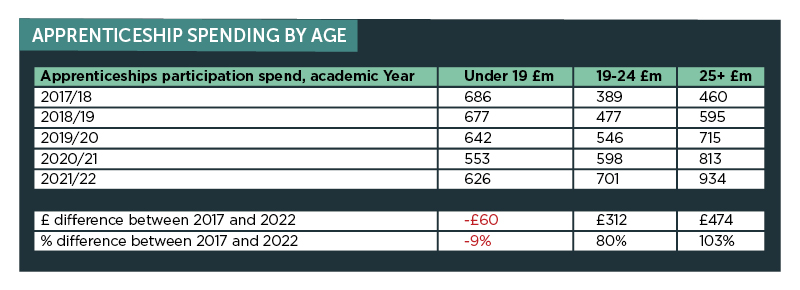The hashtag #andcolleges has been doing the rounds on social media for a little while now, representing the post-16 education sector’s frustration in response to statements, projects and policies focused on schools (and often universities as well) that demonstrate no apparent awareness of the significance of post-16 providers in the education landscape.
When it comes to closing the attainment gap between young people from disadvantaged backgrounds and their peers, it is particularly puzzling to find colleges excluded from the discussion. After all, the majority of students from disadvantaged backgrounds progress to colleges at the age of sixteen, meaning that colleges support a far higher proportion (double the percentage) when compared with school sixth forms. More specifically, colleges work with the vast majority of the 300,000 students who need to resit their English and maths GCSEs each year, 70 per cent of whom are from disadvantaged backgrounds.
Last week, the House of Commons Committee of Public Accounts published its report on Education Recovery in Schools in England. The report highlights the role played by learning lost during the pandemic in entrenching disadvantage, noting that a decade of progress in reducing the gap in attainment between learners from disadvantaged backgrounds and their peers has been wiped out.
A significant focus of the report is on the role played by tuition, and the National Tutoring Programme (NTP) in particular, in the drive to ensure the disadvantage gap rapidly returns to pre-pandemic levels and continues to close. There was no mention of the NTP’s sister programme, the 16-19 Tuition Fund, which last year made £92 million available to post-16 providers so they could provide catch-up tuition to young people.
Colleges work with the vast majority of students who resit English and maths
One of the report’s five recommendations was that DfE “should monitor how much tutoring is being provided, in 2022/23 and 2023/24 when it is providing a subsidy, and in subsequent years, and intervene if tutoring levels drop significantly.” The focus here was on the NTP, in recognition of the impact that tutoring can have on learners from disadvantaged backgrounds in schools, but we can certainly follow this with our hashtag – #andcolleges – where tutoring can play a significant role in closing disadvantage gaps for older learners.
There is strong research evidence that small-group and 1:1 tuition can have a significant impact on educational attainment, particularly in maths and reading, and particularly for young people from disadvantaged backgrounds. At Get Further, we have recently published our annual impact report for 2021/22 which demonstrates the equally significant impact that small-group tuition can have on learners resitting GCSE English and maths in post-16 settings.
With extra support provided by tutors, we have found that young people can achieve grade 4 in English or maths at rates considerably higher than the national average. We also know that achieving English and maths GCSEs can lead to economic benefits for learners, with an increase in lifetime earnings of over £45,000. Not only does the investment in tuition considerably improve the life chances of the individual young people who benefit from it directly, there are also significant benefits for the wider economy.
Post-16 education has a crucial role to play both in closing the disadvantage gaps that opened up during the pandemic and ensuring that the pre-Covid progress made in closing gaps is resumed. It is overwhelmingly colleges that are helping those young people who, due to disrupted education, missed out on a grade 4 in their English and maths GCSEs to catch up. They should not be left out of conversations about education recovery, not least because the financial and staffing pressures confronting schools are compounded in a sector that has historically been significantly underfunded.
In this context, and in light of the compelling evidence of the impact tuition can have the educational and life chances of all young people, including those over the age of 16, we are calling on the government to ensure that colleges are more than an afterthought in the decisions taken about educational recovery.
The government needs to extend and scale up national tutoring policies to ensure that high-quality, fully-funded tuition is available beyond August 2024 to all young people who need that extra bit of support to truly achieve their potential.


